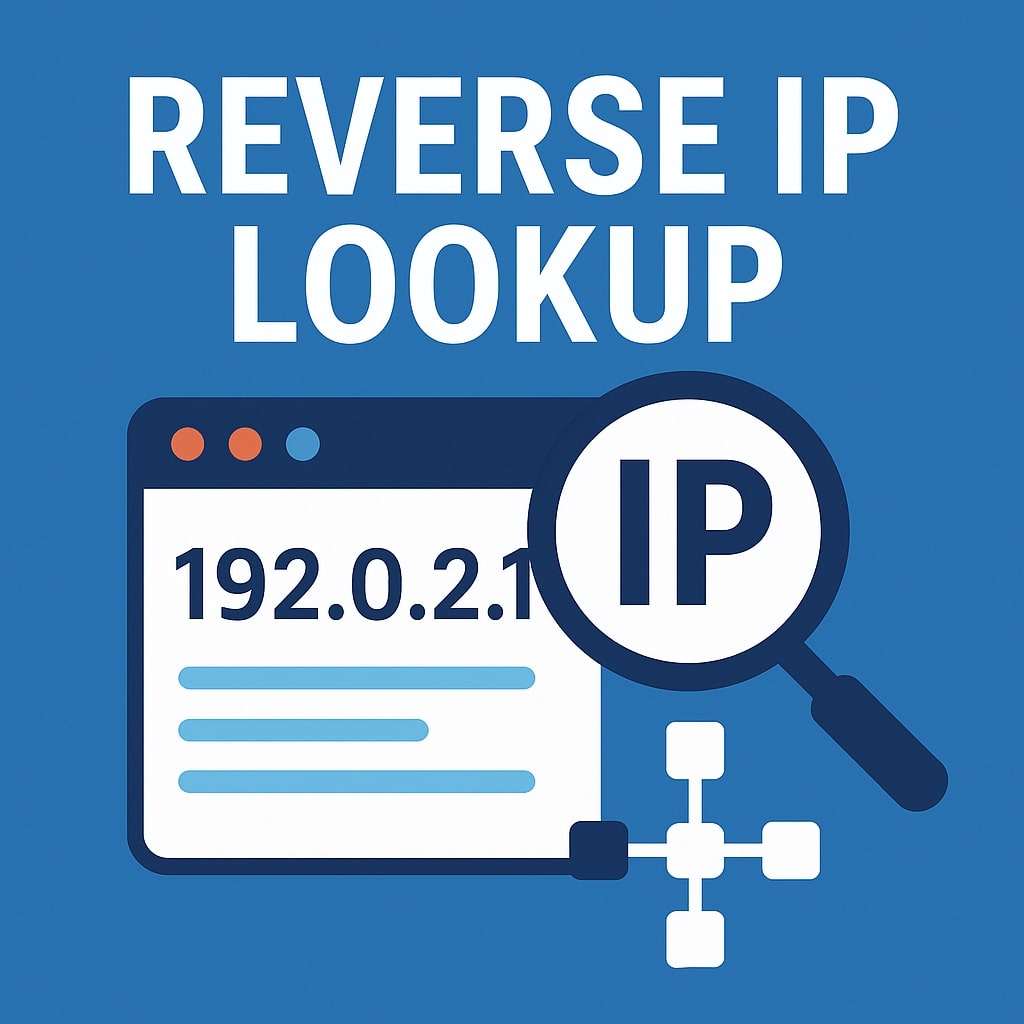
Reverse IP Lookup
Created on 28 September, 2025 • Checker Tools • 65 views • 2 minutes read
"Learn what Reverse IP Lookup is, how it works, and why it matters for SEO, cybersecurity, and business intelligence. Discover tools, benefits, and practical use cases in this complete guide."
Reverse IP Lookup: A Complete Guide for Website Owners and MarketersIn today’s digital world, knowing who shares your server and how IP addresses connect to websites can be a game-changer. Reverse IP Lookup is a powerful tool that reveals which domains are hosted on a specific IP address. This process helps businesses, cybersecurity experts, and marketers gain valuable insights about websites, competitors, and potential threats.
What is Reverse IP Lookup?
Reverse IP Lookup is a technique used to identify all domain names linked to a single IP address. Unlike a traditional DNS lookup, which resolves a domain name into an IP address, reverse IP does the opposite: it takes the IP and returns all associated domains.
For example, if you input the IP address of a web server, the lookup will list multiple websites that share the same hosting environment. This can uncover connections between domains, detect fraudulent networks, and reveal hidden business relationships.
Why is Reverse IP Lookup Important?
Reverse IP Lookup is more than just a technical curiosity—it has real-world applications that matter for businesses and individuals. Key benefits include:
Competitor Research: Identify other domains owned by your competitors.
Cybersecurity: Detect malicious websites hosted on the same server as yours.
SEO Insights: Discover if your domain is on a shared IP with spammy websites that may affect your rankings.
Digital Marketing: Find business partners, affiliates, or hidden microsites run by the same company.
How Does Reverse IP Lookup Work?
Every website runs on a web server that has an assigned IP address. Multiple domains often share the same IP, especially when hosted on shared hosting plans. A Reverse IP Lookup tool queries databases of domain-to-IP mappings and displays all domains hosted on the given IP.
Most tools rely on DNS records and WHOIS databases to provide results. While not always 100% comprehensive, these tools give strong insights into hosting environments and domain connections.
Common Tools for Reverse IP Lookup
There are several online platforms that make reverse IP lookups simple and effective:
YouGetSignal – A popular free tool to quickly check hosted domains.
ViewDNS.info – Provides detailed DNS and IP intelligence.
SecurityTrails – Advanced cybersecurity and domain intelligence platform.
SpyOnWeb – Useful for marketers and SEO professionals.
Use Cases of Reverse IP Lookup
Cybersecurity and Threat Detection
Organizations use reverse IP lookups to uncover potential cyber threats. If your website shares an IP with malicious sites, you could be at risk of blacklisting or reduced reputation.
SEO and Digital Marketing
Shared hosting can sometimes affect SEO. By checking your server’s neighborhood, you can ensure that your domain isn’t linked to spammy or harmful websites. Marketers also use reverse IP to map competitors’ digital assets.
Business Intelligence
Companies can discover hidden websites, affiliate networks, or microsites that competitors may not openly advertise. This intelligence supports brand monitoring and strategic planning.
Conclusion
Reverse IP Lookup is a powerful tool for website owners, marketers, and cybersecurity experts. It helps uncover hidden domains, improve SEO strategies, and safeguard websites from potential risks. Whether you are analyzing competitors or protecting your business, running a reverse IP lookup provides valuable insights into the digital ecosystem.
By integrating this technique into your online strategy, you can stay ahead in security, marketing, and digital intelligence.
Popular posts
-
Barcode readerMisc Tools • 160 views
-
Color pickerMisc Tools • 122 views
-
Exif readerMisc Tools • 117 views
-
SHA-256 generatorGenerator tools • 93 views
-
Ip LookupChecker Tools • 90 views